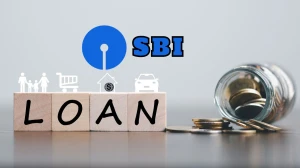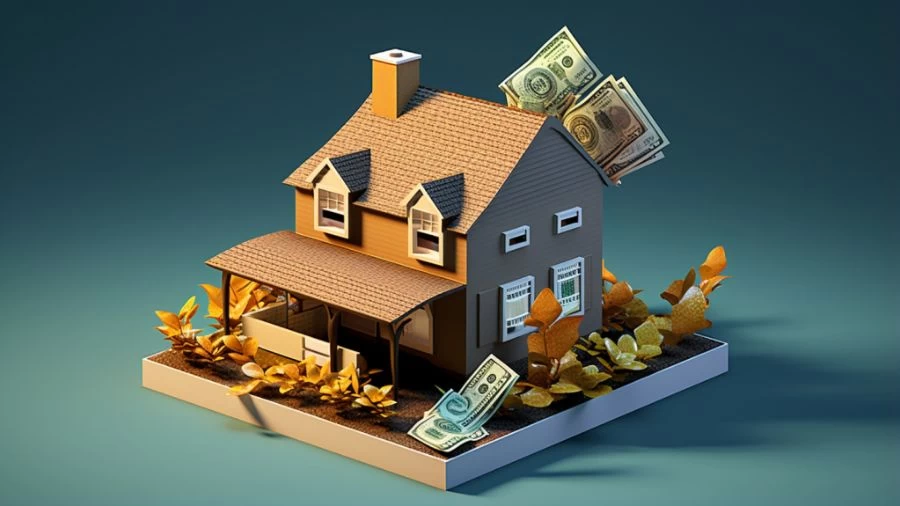
When is the Best Time to Refinance Your Home?
The best time to refinance your home is when interest rates are significantly lower than your existing mortgage rate, your credit score has improved, your home's value has increased, or you want to switch from an adjustable-rate to a fixed-rate mortgage for payment stability.
Published Aug 01, 2023 | Updated Dec 08, 2023 | 📖 6 min read
What is a Home Refinance?
In the USA, a home refinance is a financial strategy where homeowners replace their current mortgage with a new one. People usually consider refinancing to secure a more favorable interest rate, reduce their monthly mortgage payments, or tap into their home's equity. The process involves applying for a new loan, which pays off the existing mortgage, and the homeowner starts making payments on the new loan.
Homeowners might opt for a Mortgage Refinance if interest rates have dropped since they took out their original loan, allowing them to save money over the life of the mortgage. Additionally, refinancing can be a way to consolidate debt, fund home improvements, or adjust the loan term. However, it's essential to carefully weigh the costs associated with refinancing against the potential savings or benefits to ensure it's a financially sound decision based on individual circumstances.
When is the Best Time to Refinance Your Home?
The best time to refinance your home is when you can lower your interest rate by a significant amount, typically between one-half to three-quarters of a percentage point. This reduction makes sense if you plan to stay in your home long enough to cover the closing costs associated with the refinance.
Reducing Interest Expenses
Consider refinancing your home when you can secure a significant reduction in your interest rate, typically ranging from one-half to three-quarters of a percentage point. This becomes a wise choice if you plan to stay in your home long enough to offset the associated closing costs.
Consolidating Debts with High Interest
Refinancing becomes a sensible option when seeking to consolidate high-interest debts, like credit card balances, by leveraging your home's equity. This strategic move has the potential to result in substantial savings, making it a compelling reason to explore refinancing.
Removing Mortgage Insurance Costs
If the value of your home has appreciated, refinancing provides an opportunity to eliminate the need for private mortgage insurance (PMI) on conventional loans or mortgage insurance premiums (MIP) on FHA loans. This becomes particularly relevant when aiming to reduce long-term costs associated with insurance payments.
Commitment to Long-Term Residence
Refinancing makes strategic sense if you qualify for more favorable loan terms and have plans to remain in your current residence for an extended period. However, if you anticipate a move in the near future, the limited timeframe may impede your ability to recoup the costs associated with obtaining a new loan.
Adjusting Loan Term for Monthly Relief
For individuals facing challenges with monthly mortgage payments, refinancing to extend the loan term can lead to smaller monthly payments. It's essential to recognize that while this provides short-term relief, the overall cost of the loan increases due to an extended period of interest payments.
Funding Home Improvement Projects
When considering home renovations that enhance your property's value, a cash-out refinance can be a valuable investment. It provides the necessary funds for improvements while leveraging the increased home equity.
MarketsHost, your trusted online marketplace for all Mortgage-related things. Whether you're a first-time homebuyer or refinancing, we've got you covered.
How Many Times Can You Refinance Your Home?
The possibility of refinancing your home is technically unlimited; there's no strict cap on the number of times you can refinance your mortgage. However, lenders often impose what's known as a "seasoning requirement," meaning there's a waiting period between securing the initial mortgage and seeking a refinance. Typically, this waiting period falls between six to 12 months, with variations based on the lender's policies.
Some specific refinancing types, like cash-out refinancing or government-backed loans, may have additional waiting periods, ensuring borrowers wait a certain duration before refinancing again. It's essential to understand your lender's specific requirements and policies to determine the ideal timing for your mortgage refinancing needs.
When Should You Avoid Mortgage Refinance?
Refinancing a mortgage can offer financial benefits, but determining the right time to pursue this option is crucial. Key factors, such as timing, personal financial circumstances, and individual eligibility, play a pivotal role in deciding whether mortgage refinancing is a suitable choice.
Right After Buying the House
Refinancing immediately after purchasing a home is often not advisable. This is because you would incur closing costs twice, extending the breakeven point. Additionally, some lenders impose prepayment fees, penalizing you for paying off your mortgage too early.
Inability to Secure a Lower Interest Rate
Refinancing may not be the best idea if you cannot secure a lower interest rate. If the new rate is significantly higher than your current one, it could increase your monthly costs and add to long-term interest charges, diminishing the potential savings from a refinance.
Low Credit Score
Refinancing is generally discouraged if you have a low credit score. Low scores often result in higher interest rates, potentially reducing the financial benefits of a refinance. Lenders typically offer their best rates to borrowers with credit scores above 740. However, there are few options to Refinance Mortage During Poor Credit Score.
Is It a Good Idea to Refinance Your Home?
Yes, refinancing your home can be a good idea, but it largely depends on your individual financial goals and circumstances. If you can secure a reduced interest rate, ideally by 1% or more, it often translates into substantial savings over the life of the loan. Additionally, refinancing can make sense if you plan to stay in your home long enough to offset the closing costs with lower monthly payments.
Removing private mortgage insurance (PMI) or switching from an adjustable-rate to a fixed-rate mortgage are also valid reasons to consider refinancing. However, it's essential to calculate the break-even point diligently, comparing the potential savings against the costs involved, to make an informed decision tailored to your specific needs.
What are the Pros and Cons of Refinancing Your Home?
Refinancing your home can be good because it might lower your monthly payments and overall interest costs, especially with a shorter loan term. It also lets you get rid of PMI and adjust your mortgage terms to fit your money goals. But, it can be not so great because of the high closing costs, a temporary hit on your credit score, and the chance of paying more over a longer loan period.
Pros of Refinancing Your Home
- Refinancing can secure a lower interest rate, reducing monthly payments and overall interest costs, especially with a shorter repayment term.
- Refinancing allows removal of PMI if home value has increased, saving significant money annually.
- Refinancing offers flexibility to switch from adjustable to fixed-rate mortgages or adjust loan terms according to financial goals.
- Refinancing enables removal or addition of co-borrowers, accommodating changes in financial situations.
- With home equity, a cash-out refinance provides funds for high-interest debt or other financial needs.
Cons of Refinancing Your Home
- Refinancing involves substantial closing costs, typically ranging from 2% to 6% of the new loan amount.
- Applying for a refinance leads to a hard credit inquiry, temporarily affecting credit scores. The prior mortgage appears as a closed account initially.
- Refinancing to a longer term or a cash-out option may result in paying more over the loan's life and higher debt-to-income ratios.
When is the Best Time to Refinance Your Home - FAQs
1. When is the best time to refinance my home?
The ideal time to refinance is when interest rates are significantly lower than your existing mortgage rate, or when your credit score has substantially improved.
2. How many times can I refinance my home?
There's no strict limit, but lenders often impose a waiting period of six to 12 months between the initial mortgage and a refinance.
3. Why should I consider refinancing my home?
Refinancing can lower your interest rate, reduce monthly payments, remove PMI, offer flexibility in loan terms, and provide access to home equity.
4. Is refinancing a good idea for me?
It depends on securing a reduced interest rate, staying in the home long enough to offset closing costs with lower payments, and meeting specific financial goals.
5. What are the drawbacks of refinancing my home?
Closing costs can be substantial (ranging from 2% to 6%), it affects credit scores temporarily due to inquiries, and opting for longer terms may increase overall costs.




